Some Issues with 2 meters VHF
I have a VHF radio in my car with a mag-mount antenna. One of the things I like to do is join in the Nashua Area Radio Society’s Weekly Repeater Net. I enjoy it so much that I volunteer to be in the Net Control rotation. When it is my turn, I need to be sure I can reliably reach the repeater and there were a few times when my mobile setup let me down.
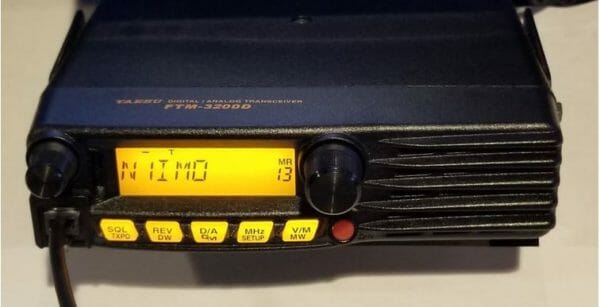
I recently updated my shack to include a Yaesu FTM-3200D 2-meter radio that has up to 65 Watts output on 2 meters.
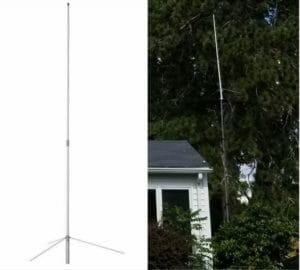
I paired that with a Diamond X200A Dual Band VHF/UHF Antenna and things improved a bit, but there were still a few times when I was scheduled to be Net Control that I could not reliably connect to the repeater. I did some research and here is what I learned.
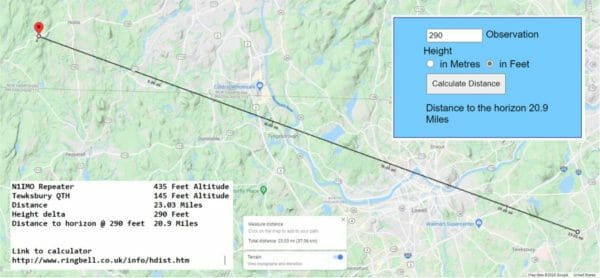
VHF, especially in the FM mode is mainly a line of sight band. There are many propagation modes that go way beyond the line of sight, such as Sporadic-e, Tropospheric ducting, Auroral propagation, Meteor scatter, and Earth-Moon-Earth (EME), but they are not relevant to this discussion of connecting to a repeater. The map above shows the approximate location of the repeater and my QTH in Tewksbury. I looked up the height of the repeater antenna and my QTH and came up with a difference between them to help calculate the distance to the horizon from one point to the other. Here is the link to the calculator in the blue box: http://www.ringbell.co.uk/info/hdist.htm Line of sight, as it applies to radio in this situation extends a bit beyond what the optical line of sight maybe, and that describes perfectly the situation shown above. The repeater appears to be located about 10% beyond the optical line of sight from my QTH.
What can I do about it?
Most of the time, I can connect to the repeater. Unfortunately, I cannot predict whether or not I will be able to connect. The first thing I thought I could try was to raise the antenna at my QTH to extend the view over the horizon. I checked on the LOS calculator and found that adding 10 feet to my antenna mast would only get me out to 21.2 miles or a .3-mile gain. This approach would quickly reach the point of diminishing returns, so I needed another solution. The next thing I thought about was improving the antenna. 2-meter yagi beam antennas are very reasonably priced, and I found the Diamond A144S10 Base Station Yagi Beam Antenna for under $95.00. It has 11.6 dBi gain, so should work well.

Any antenna project will include more than the price of the antenna but by using some parts I already had on hand and adding an inexpensive TV rotator, I was able to install the antenna at a reasonable cost.
Building the 2 Meter Yagi Antenna
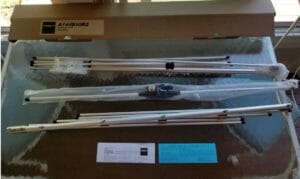
The antenna comes in a small box with many of the parts pre-assembled.
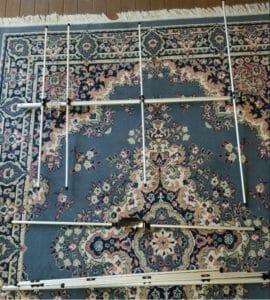
I twisted the elements of one section into position and tightened the wing nuts to hold them in place.
After repeating the process with the other elements and assembling the pieces I moved on to install the horizontal bracket on a piece of chain link top rail I used for the mast.
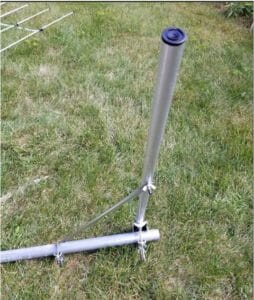
The stand-off bracket serves two functions. First, it attaches the antenna to the mast in a vertical orientation and second, it moves the antenna away from the mast so that there is no interaction between the metal mast and the antenna elements.

Here is the antenna staged without the rotator, prior to installation on the roof.
Preparing to install the antenna on the roof
It is a good idea to pre-wire the antenna rotator and calibrate it before going up on the roof. The Hy-Gain AR-500 Rotator is easy to configure.
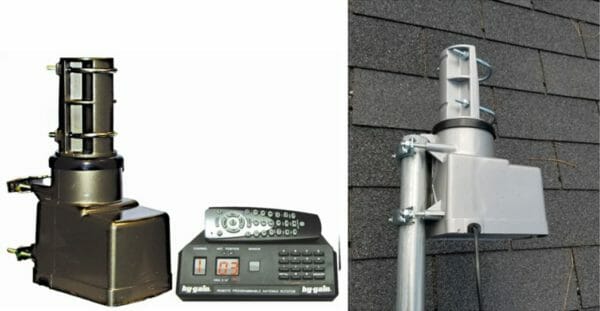
I installed the tripod on the roof taking care to place the lag bolts into the rafters and waterproof them thoroughly. Importantly, I used the level and the top rail to ensure that it would be vertical prior to mounting it to the roof.
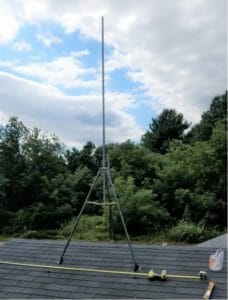
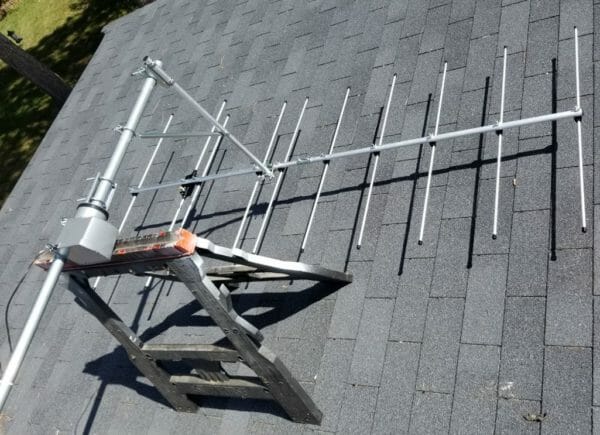
Assemble the Antenna, Mast, and Rotator.
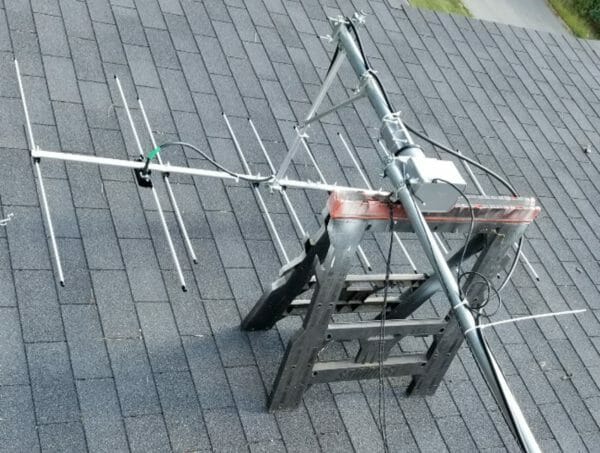
Next, attach all wires, coax, and guy lines while the antenna is in reach.
Install the 2 Meter Yagi antenna in the roof mount tripod

Lifting the completed assembly to mount it in the tripod.
I lined up the whole assembly and carefully lifted it into the tripod mount. If I ever do this again, I will have a helper!
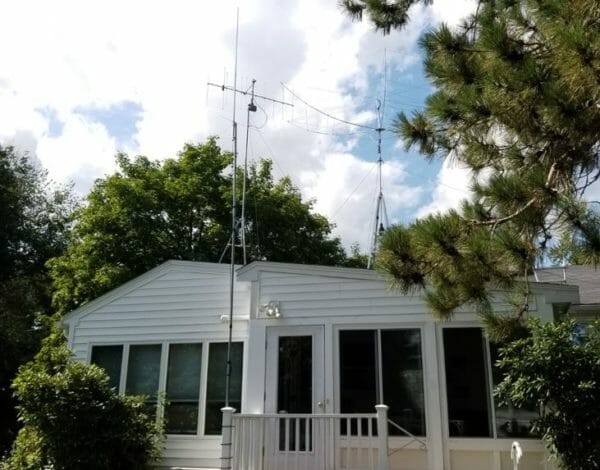
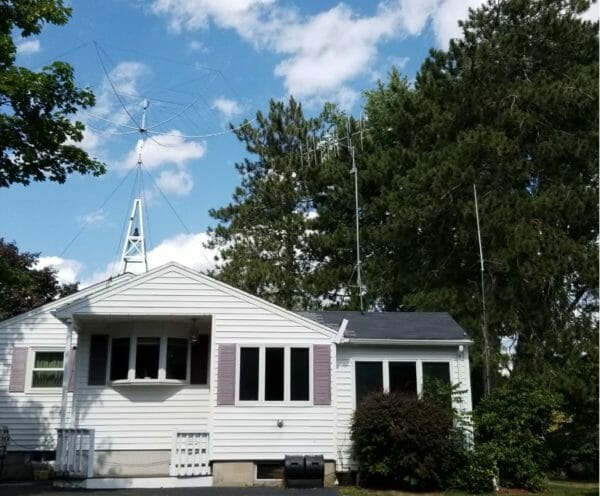
The Hex Beam is 33 feet up. The new A144S10 10 element 2 meter Yagi is around 28 feet and the Diamond X200A is around 20 feet high at the feed point.
The results are in
Finally, I made arrangements with Fred, AB1OC to do some testing later that afternoon. I oriented the antenna to the compass accurately and looked up the heading to the repeater. Fred helped me with adjusting my mic gain and power output to make sure the radio was working properly. After a few tweaks, we were both happy with the results. I hosted the Nashua Area Radio Society’s Weekly Repeater Net that night, which turned out to be a success. I am looking forward to exploring the capabilities of this new antenna.
Jon, AC1EV

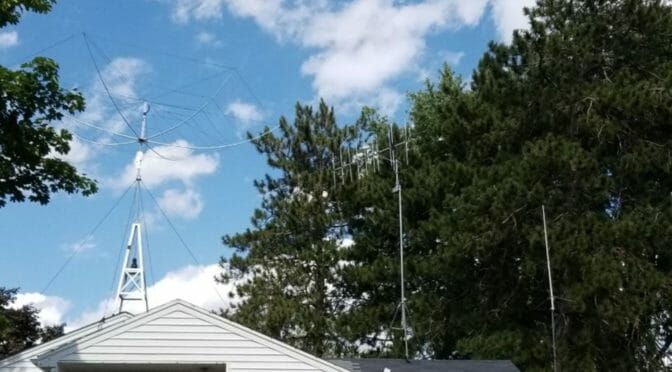
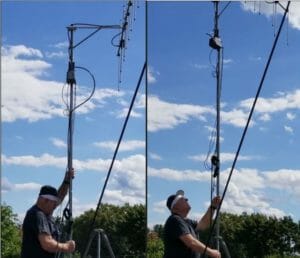
Nice work! Thanks for the description and the pictures.